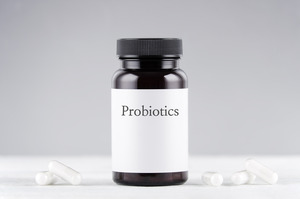
Gum disease affects nearly half of all adults in the United States, and it’s known to result in tooth loss if it’s left alone for too long. Given those facts, you may wonder what you can do to protect your smile from gum disease. There are multiple steps you can take, but one measure you might not have thought of is making use of probiotics. Your periodontist is here to explain exactly what probiotics are and how they can help you maintain healthy gums.
What are Probiotics?
The term “probiotics” refers to microorganisms that are beneficial to your body. They can be found in certain foods as well as dietary supplements. Probiotics can have all sorts of positive effects, from helping you digest your food properly to making it easier to maintain a healthy weight.
How Can Probiotics Improve the Health of Your Gums?
Research indicates that certain probiotics could have a positive impact on the overall state of your gums. In particular, a group of bacteria known as lactobacilli are known to be able to combat harmful oral bacteria, thus making it easier to maintain a healthy environment inside your mouth.
One study had people with gum disease chew gum containing lactobacilli on a daily basis. After two weeks of this, the subjects were shown to have less plaque. This is notable because plaque is often a significant contributor to gum disease. Additionally, lozenges containing lactobacilli have been shown to be beneficial for patients with plaque and inflammation.
If you have concerns about your gum health, it’s worth talking to your periodontist to see if probiotics may be a good option for you.
What Else Can You Do to Protect Your Smile from Gum Disease?
Of course, taking probiotics is just one way you can lower your chances of developing gum disease. Other steps you can take include:
- Practicing Excellent Oral Hygiene: You can remove plaque from your teeth and gums by brushing at least twice a day with a soft-bristled toothbrush. Don’t forget to floss as well in order to get rid of plaque and food particles between your teeth.
- Keeping Up Regular Checkups and Cleanings: It’s important to see your regular dentist at least once every six months. They’ll be able to check for signs of gum disease and other oral health threats that you may not have caught on your own.
- Being Mindful of Your Diet: Eating certain kinds of foods can make it significantly easier to maintain healthy gums. Examples of such foods include fatty fish, nuts, seeds, milk, and cheese. (Don’t forget to eat plenty of probiotic-rich foods such as yogurt and sauerkraut.)
Remember, even if you take all the right precautions, gum disease could still end up forming in your mouth. If that happens, you can talk to your periodontist about the treatment options that can help get your oral health back on track.
About the Author
Dr. David Handsman is a trustworthy periodontist in Worcester who received a Master of Dental Surgery in periodontology at the University of Tennessee. While there, he contributed to research in microbiology and immunology. At his practice, Handsman & Haddad Periodontics, he protects his patients’ smiles from gum disease with scaling and root planing along with other treatment methods. To schedule a consultation with Dr. Handsman, visit his website or call (508) 753-5444.

